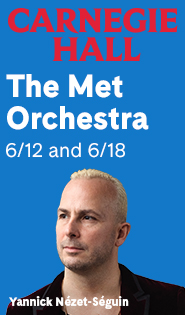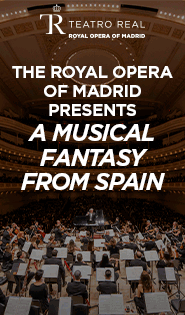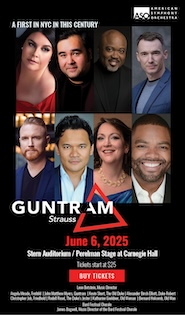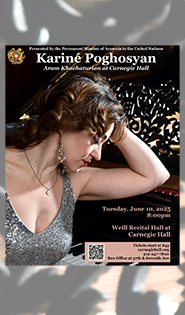Pianist Cahill throws a centennial party for Lou Harrison
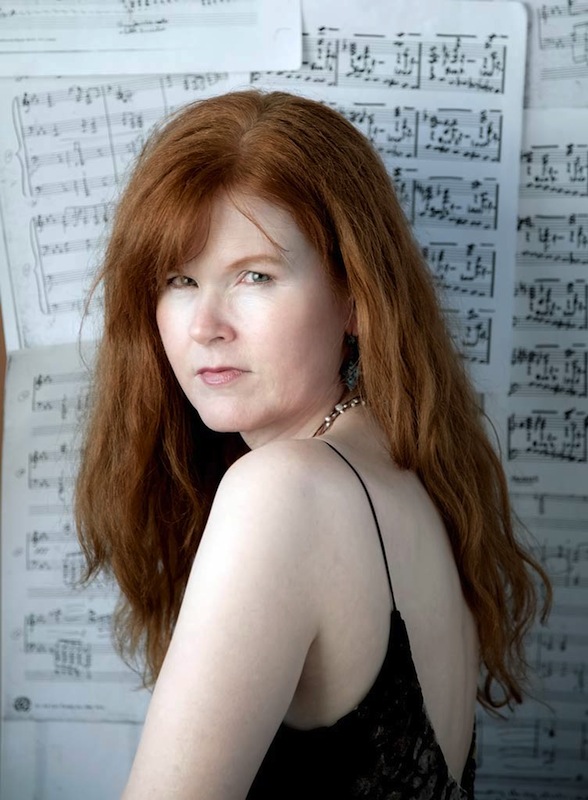
Sarah Cahill performed music of Lou Harrison Thursday night at Le Poisson Rouge.
The late composer Lou Harrison had a lot of friends, and one could imagine some of them gathering around the piano Thursday night at Le Poisson Rouge as Sarah Cahill played a tribute to the Bay Area-based composer and civil-rights activist, who would have turned 100 on May 14.
Ear-bending yet convivial short piano pieces by Harrison, Henry Cowell, Johanna Beyer, John Cage, and James Cleghorn evoked a uniquely curious and optimistic American offshoot of the mid-20th-century avant-garde, whose gentle spirit seemed epitomized in Harrison’s music and personality.
Cahill was personally acquainted with Harrison (who died in 2003) and many of his friends, and has made a specialty of performing their piano music. The uncommon sympathy and insight she has brought to the task was fully on view Thursday night, as the brief pieces took shape with every nuance and witty twist in place.
The pianist came onstage with an armload of printed music, ranging from published scores to her own cellphone photos of the composers’ manuscripts. She said a few words about each piece before playing it—a very few words, so that the recital overall would not exceed the club’s 60-minute time limit.
Two unpublished pieces by Harrison, Range Song and Jig, set the unassuming tone for the evening, the former a simple cowboy tune, the other a distinctly Irish skipping dance. Borrowing a technique from his teacher Cowell, Harrison harmonized both pieces with cluster chords, played either with bunched fingers or the forearm on the keys.
Where do you go to learn how to voice chords with the side of your arm, or to sing a melody with your elbow? Cahill must have been there, because Range Song sang prettily over its accompaniment of hazy bunched chords, all gently executed with the pianist’s right forearm. Then Cahill showed off some fast wrist action, dancing a jig in cluster chords.
The first movement of Cowell’s Rhythmicana offered more robust pianism, sounding like an avant-garde version of a Lisztian storm at sea. The right-hand chords boomed and the wide left-hand arpeggios rolled in a welter of shifting rhythms, which in Cahill’s performance sounded as natural as a stirred-up ocean in a gale.
Rhythmicana was dedicated to Cowell’s close friend, the composer and pianist Johanna Beyer, and so a piece by her followed his on Thursday’s program. The title Dissonant Counterpoint V referred to a composing technique developed by Charles Seeger, in which the goal of the composition was to increase dissonance rather than to “resolve” into consonance.
Beyer’s piece was, however, no dish-breaking affair, just a modest two-part invention that started in the piano’s lowest register and climbed high, its two melodies intertwining with Schoenbergian expressive leaps.
The title Exquisite Corpses also refers to a technique, a sort of party game–played, in Thursday’s example, by Cage, Cowell, and Harrison–in which the participants took turns composing four bars of music, then folding the page to conceal what they’d written from the composer of the next four bars. At the end, the paper was unfolded and the piece played.
Cahill performed several such micro-pieces—one of which included, of course, four bars of silence contributed by Cage–from her own photos of the still-creased originals. Hearing the quirky little items, and the pianist’s evident determination to penetrate to the expressive essence of each one, a listener couldn’t help wondering if “modern music” wasn’t one giant leg-pull after all.
Arnold Schoenberg met Thelonious Monk in Conductus, composed by Harrison during his study with the Viennese master. A twelve-tone row sang out in long notes as a sort of medieval cantus firmus under a nervous, jazzy right hand, animated by Cahill’s stabbing sforzandos and light but pointed staccato.
James Cleghorn, a composer who eventually became head of the music department of the San Francisco Public Library, earned his spot on Thursday’s program by introducing Harrison to Cowell in the mid-1930s. Cahill called Cleghorn’s son Peter to the stage to reminisce briefly about musical visitors and conversations in the family home 70 years ago, then played Cleghorn’s Cyclus No. 18, a melodious fugue in an openhearted, Coplandesque style.
Pieces by Harrison and Cage followed, both composed in 1946 for the choreographer Jean Erdman, and both reflecting psychological stress the composers were suffering at the time. Harrison’s The Changing Moment—receiving its New York deuxième after a 71-year absence—obsessively returned to the same dissonant chord, with Cahill’s taut lines suggesting nervous tension without relief.
Cage’s Ophelia evoked Shakespeare’s tragic character with bold statements, timorous murmurs, and desperate exclamations, capped by the repeated clanging of a big “bell” chord. Cahill’s broad palette of piano sonorities brought this portrait of passion and disorientation frighteningly to life.
To be sure of finishing the concluding work, Harrison’s lively Summerfield Set, on time, Cahill had to omit a piece by Frank Wigglesworth, the first movement of his Sonatina. In his day, Wigglesworth (1918-1996) was a pupil of Cowell and Varèse, respected teacher at Columbia and the New School, and president of the American Composers Alliance. Wherever he is now, one hopes he didn’t hear the titters in the room when Cahill apologized “if anyone came to hear the Wigglesworth…”
Summerfield Set, essentially a three-movement sonata composed in 1988 for the organist Susan Summerfield and suitable (the composer said) also for piano or harpsichord, provided a bright-eyed closer to this Harrison celebration. This late work had a particularly open, listener-friendly character, with a first movement contrasting marcato repeated notes with flowing legato lines, followed by another two-part invention with Bach-like sequences and a peppery “Round for the Triumph of Alexander” with dancing phrases and sparkling embellishments worthy of Rameau.
The next presentation of Western classical music at Le Poisson Rouge will be violinist Michelle Ross in “Discovering Bach,” 5 p.m. Sunday. lpr.com; 212-505-3474.
